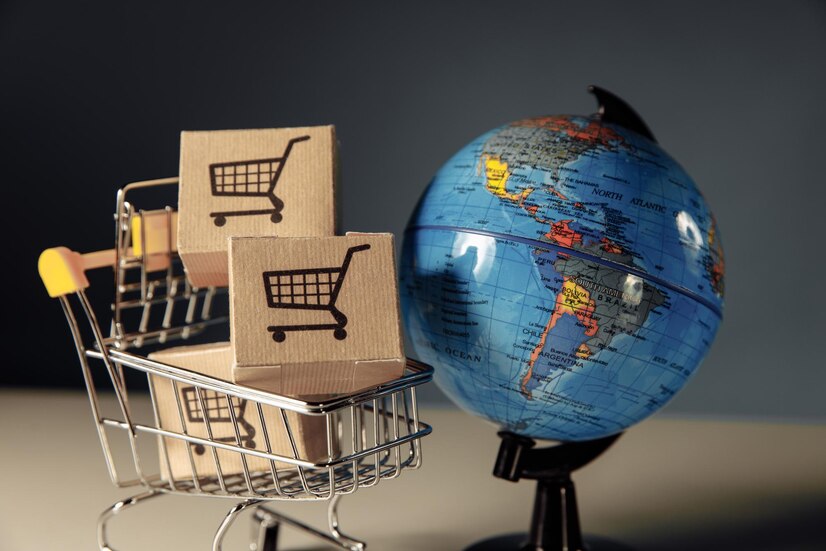E-commerce has evolved from a convenience into a core pillar of global retail, shaping how billions of people discover, purchase, and interact with products. But while the concept is universal, the way it’s executed differs widely across markets.
In the UK, e-commerce is defined by scale, efficiency, and a refined customer experience. Decades of established infrastructure, sophisticated supply chains, and high internet penetration have allowed platforms to focus on perfecting convenience, whether through next-day delivery, personalized recommendations, or frictionless payment systems.
Africa’s e-commerce story, however, unfolds in a more dynamic and resourceful way. The continent faces infrastructural gaps, fragmented logistics, and uneven internet access. Yet, these challenges have bred innovation, platforms that merge fintech with retail, reimagine delivery routes, and craft trust-building mechanisms for first-time digital buyers.

By looking at the leaders in both regions, we see not only different stages of digital retail maturity, but also different kinds of innovation. Here are eight companies, four from the UK and four from Africa, that are defining how people shop, each in their own way.
Amazon UK : The Benchmark for Online Retail
Amazon’s UK arm is the uncontested leader in the nation’s online retail market, with over 343 million monthly visits as of mid-2024. Its appeal lies not just in its endless product catalogue, but in the infrastructure supporting it: advanced warehousing, Prime’s fast-delivery promise, and a cloud backbone that keeps the site running at speed even during peak shopping frenzies like Black Friday.
While competitors try to match its logistics and pricing, Amazon continues to expand into services, from grocery delivery with Amazon Fresh to Alexa-integrated shopping, cementing itself as a lifestyle ecosystem rather than just a store. Beyond market dominance, Amazon’s operational footprint across Britain is substantial: as of July 2025, the company says it runs 31 fulfilment centres in the UK, part of a network that also includes sortation sites and delivery stations.
In June 2025 Amazon also announced a multi-year £40 billion UK investment plan, covering cloud and AI infrastructure as well as logistics upgrades, alongside new fulfilment centres in Hull and Northampton that are expected to create thousands of jobs; Amazon cites a current UK workforce of 75,000+.
eBay UK : Community Powered Commerce
With around 185 million monthly visits, eBay UK has transitioned from its early auction-only model to a mixed format that blends individual sellers, small businesses, and major retailers.
This adaptability has helped it survive when other early-2000s dot-com names faded.It remains a hub for collectors, bargain hunters, and niche product seekers, proving that scale isn’t only about vast warehouses, it’s also about cultivating a loyal, engaged community that finds value in the platform’s diversity.
eBay UK is in the middle of significant payments and fees changes in 2025. The platform has begun holding seller payouts until delivery is confirmed (with a stated 72-hour window after confirmation) and has introduced a buyer protection fee paid by buyers rather than sellers, moves aimed at reducing fraud and funding protections, though they’ve sparked debate among sellers.
ASOS : Fashion Without Borders
From London to Lagos, ASOS has become a symbol of UK e-commerce success in the fashion sector. With more than 79 million monthly visits, it serves over 200 markets and has mastered the art of catering to diverse fashion tastes without losing its distinct brand identity.Its technology plays a quiet but crucial role: AI-driven personalization, virtual catwalks, and size recommendation tools reduce returns while improving customer satisfaction.
ASOS’s model shows how a niche focus, in this case, trend-driven apparel, can thrive globally with the right tech backbone. ASOS has been undergoing a quiet but determined transformation. Once synonymous solely with fast fashion trends, the company is now placing greater emphasis on profitability, sustainable sourcing, and building stronger loyalty among its core customers.
By refining its product mix, prioritising its in-house label ASOS Design, and leveraging data to predict and respond to fashion trends faster, the retailer is creating a more resilient business model. Its tech-driven approach to personalisation and inventory management means shoppers are more likely to find items they love, without the overproduction that has historically plagued online fashion.
Tesco Online : From Supermarket Aisles to Digital Carts
Tesco’s annual turnover of £64.8 billion (2020) proves that its digital pivot has paid off. The brand’s online arm leverages its existing supermarket network for “click and collect” and rapid delivery, while also experimenting with contactless payment innovations.Its success is rooted in trust. Tesco has been part of UK households for decades, and its e-commerce platform benefits from that familiarity, something newer competitors often have to fight to earn.
Tesco’s strength in the UK e-commerce landscape comes from more than just size, it’s about how seamlessly it blends its vast brick-and-mortar presence with a robust online platform. The company has invested heavily in improving its delivery speed, click-and-collect services, and personalised shopping experiences through its Clubcard data.
This combination allows Tesco to cater to customers who value both convenience and reliability, whether they are shopping for a quick top-up order or planning a large weekly shop. Its ability to integrate technology with traditional retail has helped it remain a trusted go-to in an increasingly competitive grocery market.
Jumia : The Pioneer of African E-commerce.
Founded in Nigeria in 2012, Jumia has navigated the complex realities of selling online in multiple African markets. Operating in nine countries, the platform offers everything from electronics to fashion, alongside its own payment service, JumiaPay.
Its approach blends retail with ecosystem building: enabling digital payments where banking access is limited, and creating logistics networks where traditional infrastructure is patchy. Even with challenges such as high operational costs, Jumia expects 25 % order growth in 2025, signaling resilience and continued demand.
To broaden access and product availability, Jumia has leaned into partnerships. A headline move was its agreement with Starlink to retail the Starlink Residential Kit in Africa, starting in Nigeria in late 2023, before rolling out to additional markets, an example of Jumia tying e-commerce to digital connectivity infrastructure.
Takealot : South Africa’s Digital Shopping Giant
As South Africa’s largest online retailer, Takealot serves 1.8 million shoppers and supports thousands of independent sellers. Owned by tech investor Naspers, it has built one of the most efficient delivery networks on the continent.
Its ability to integrate diverse product categories, from electronics to homeware, while maintaining fast, reliable delivery has made it the go-to platform for urban and suburban South Africans alike.
South Africa’s Takealot is pushing beyond food with Mr D, adding categories like pet supplies and toys and striking retail partnerships to handle last-mile logistics. Leadership has set an ambition for a 50:50 mix of food and non-food orders over time as part of its on-demand expansion strategy.
Related: The Future Of Sustainability In E-Commerce.
OmniRetail : B2B Innovation in Nigeria
Unlike traditional consumer-facing e-commerce, OmniRetail focuses on the backbone of African trade: supply chains. Through products like Mplify and OmniPay, it connects manufacturers, distributors, and retailers, helping goods flow more efficiently.
Serving over 200 manufacturers and 140,000 retailers, OmniRetail’s asset-light model has kept it profitable while enabling small shops to operate like larger chains, accessing better prices, more reliable stock, and digital payment systems.
Nigeria-born OmniRetail closed a $20 million Series A (April 28, 2025) to deepen operations across Nigeria, Ghana and Côte d’Ivoire and expand its embedded-finance tools for inventory. The company highlights that it has been EBITDA-positive since 2023 and net profitable in 2024, underscoring a rare profitability profile among fast-growing B2B platforms on the continent.
Konga : Nigeria’s Homegrown Marketplace
Launched in 2012, Konga blends an online marketplace with its own logistics division, Konga EXPRESS. This in-house delivery network gives it control over customer experience in ways that many African competitors still struggle to achieve. Its product range spans electronics, fashion, and groceries, making it a versatile choice for Nigerian shoppers.
Konga’s investment in infrastructure has allowed it to sustain trust and growth in a market where delivery reliability is often the deciding factor.Konga’s modern structure stems from its 2018 acquisition by Zinox and the merger with Yudala, which brought 21 physical stores across 10 Nigerian cities into a combined, single Konga brand. The move established a true omnichannel model, online marketplace plus offline footprint, at a time when reliable last-mile and pick-up options were decisive for customer trust.
Two Markets, Two Journeys
In conclusion, the UK’s e-commerce leaders operate in a mature market where customer expectations are high, and innovation is often about refinement, faster delivery, smoother checkout, richer personalization.
Africa’s leaders, by contrast, are in an era of foundational building: developing logistics networks, creating payment systems, and earning the trust of new online buyers. Yet both markets show that leadership is not just about market share, it is about solving problems at scale.
Whether it’s Amazon perfecting one click convenience or Jumia overcoming infrastructural hurdles, the future of e-commerce will be shaped by those who understand their market’s unique challenges and opportunities.







